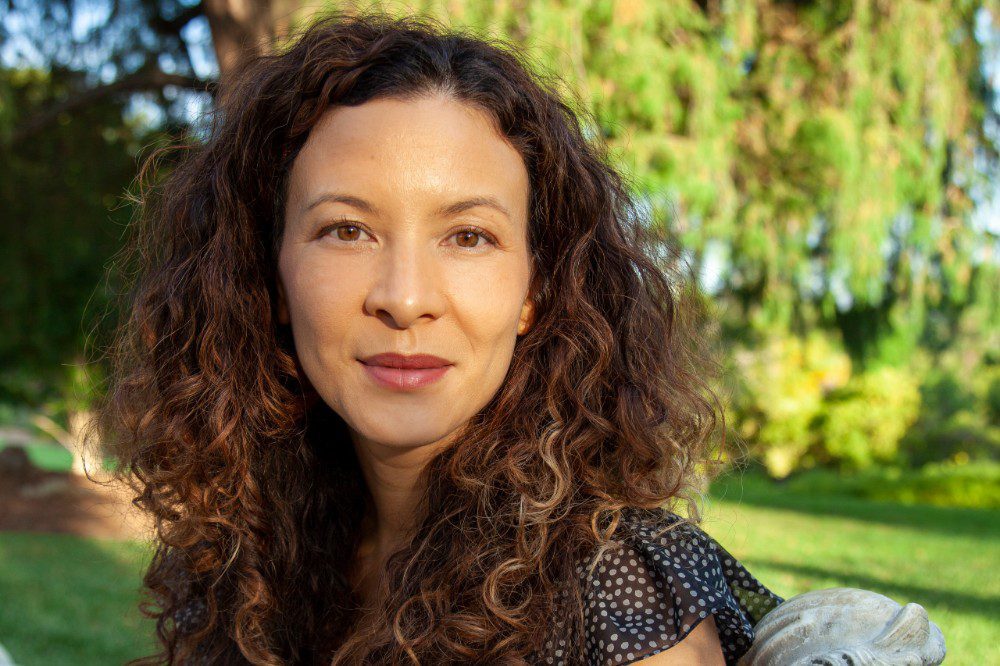Cassandra Jenkins Grapples With Tragedy and Change with An Overview On Phenomenal Nature


There’s no better time to have been gifted with the elegance of An Overview of Phenomenal Nature – the sophomore album from NYC-based musician and artist Cassandra Jenkins – than the current skewed reality the world has been thrown into. Wrapped up in the midst of a pandemic and released last week via Ba Da Bing Records, the album candidly addresses the reality of unanticipated life changes and how to come to grips with their rather uninvited side-effects. Though that notion seems all too familiar to the lost and weary humans of today, the parallel occurred almost accidentally. Taking her listeners on a journey intertwined with poetic and metaphorical rhetoric, Jenkins offers solace where it’s most needed.
Jolted by upheaval in her own life, Jenkins had no other intentions in terms of making an album but to pick up her guitar and write, building a strong lyrical foundation resonant with an ambient folk approach. She wrote lyrics spontaneously, whenever and wherever she felt the calling – even on the subway en route to the studio. “The record is from a very windowed period of my life. I didn’t walk into it with a concept of ‘this is what it’s going to mean,’” she describes. “I walked into it with a set of lyrics and experiences from a very particular point in my life. I just decided I was going to show up, and it was going to be like ‘come as you are.’”
The most shattering event propelling Jenkins to turn to her music was the death of David Berman in August 2019, just weeks before she was set to tour with his Purple Mountains project. “I had a really hard time relating to my older material, and it felt almost impossible to get on stage and sing those songs,” she says. “I basically wrote 25 minutes of music [in two weeks]. It was out of necessity. That happened to be the form of expression it took.”
Jenkins had to cancel a planned trip to Norway to tour with Berman, and in the wake of her grief, she rescheduled it. She translated that experience into “Ambiguous Norway,” perhaps the most heart-wrenching tribute to Berman on the record, though the journey was formative to her writing process in other ways, as well. “I thought a lot about my travels in Norway. It can be very uncomfortable to be completely thrown into a new environment, place or culture,” she says. “The act of throwing yourself into an unknown territory requires you to put down all of your assumptions about the world and about the way that you fit into it. It’s one of the most psychedelic experiences you can have without a substance.”
On her return to NYC, the “afterglow” of this experience brought on a new kind of curiosity as she was “hit really deeply” through every human interaction and conversation she encountered; then, the pandemic threw her into isolation before she’d had time to fully reflect on the beauty and tragedy of the previous year, and songwriting took on yet another cathartic function. “I think it was the first time that I outwardly addressed my anxiety. I don’t even think I was intentionally doing that, but now that I’m here and COVID is happening, anxiety has been a really serious problem for me,” she says. “It’s about going through changes and suddenly going through more changes before I even had time to process the first one.”
Jenkins resorted to the desolate, ghostly pathways of Central Park, finding comfort in the tranquility and in the art of walking solo. Inspired by Canadian artist Janet Cardiff, who provides immersive experiences through recorded video and audio walks, Cassandra transformed the physical activity of walking into a means of creative expression. Alas, a song entitled “The Ramble” was born. “I wanted to provide that sanctuary for the record, to give the record that place,” Jenkins explains. “I’m actually going to take you on a walk with me and hopefully give people a place to rest their minds on that.”
Tracks like “Hard Drive” have a similarly immersive, intimate approach. Through Jenkins’ lens, we encounter a cast of characters portrayed with a mix of spoken-word vignettes, lyrical phrases and jazzy ambient tones: a security guard, a bookkeeper, a psychic. Each character’s story unfolds, one after the other, though Jenkins’ dialogue with them, ultimately revealing striking observations on humanity. “I found these connections and meaning between all of them that made a lot of sense, and through the filter of my lens, they became a set of tarot cards,” Jenkins says. “When you look at them side by side, they start to have meaning.”
Turning to her own perspective, Jenkins gives a diaristic account on what it means to be human on album opener “Michelangelo.” She revisits past trauma in order to make sense of life’s by-products: that moment of processing current trauma, falling into abeyance, attempting to understand the cards that have been dealt while moving forward simultaneously. Here, Jenkins investigates “the human tendency to dwell on the things we’ve lost,” illustrated with a powerful metaphor: “I’m a three-legged dog, working with what I’ve got/And part of me will always be/Looking for what I’ve lost.” The track arrives at no grand finale, but instead oscillates with the distorted strumming of a wild guitar solo in lieu of a chorus – quite fitting for a song heavily meshed with themes of trauma and loss.
Providing an intimate account of her own reflections, Jenkins wants listeners to witness “someone being okay with not being okay” for themselves. Through her eloquent formulation, ethereal vocals, and gnarly guitar riffs, she hints that unexpected change is unfortunately out of our control. “I think we all have the opportunity to go through these changes, but sometimes it’s forced on us, sadly, by tragedy. It can be any number of things that can knock us off of our feet,” she warns.
But perhaps more importantly, Jenkins hopes the album can provide others with a blueprint for productive, healthy coping mechanisms. “I hope that I can also emphasize prioritizing mental health as much as we prioritize other aspects of our health,” she says. “I want [listeners] to find a sense of peace within themselves just knowing that we’re all in moments of great transition, all the time.”
Follow Cassandra Jenkins on Facebook and Instagram for ongoing updates.




